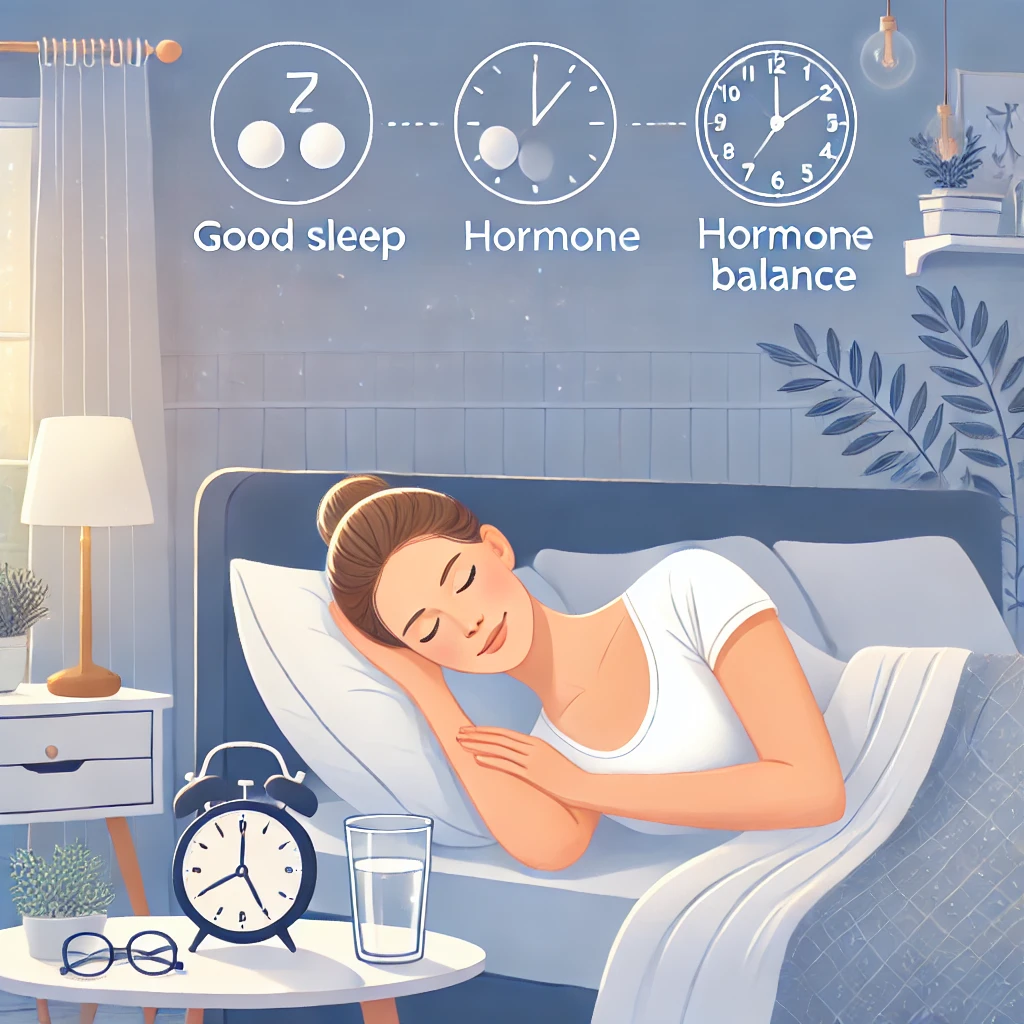
Introduction
Do you struggle with mood swings, fatigue, or weight gain? Poor sleep could be to blame. Sleep plays a critical role in regulating hormones that affect everything from stress and metabolism to reproductive health. For women, in particular, a lack of quality rest can lead to hormonal imbalances that impact overall well-being.
In this article, we’ll explore the connection between sleep and hormones, its effects on women’s health, and practical ways to improve sleep for better hormonal balance.
How Sleep Regulates Hormones
Sleep is essential for maintaining a healthy endocrine system. When we sleep, our bodies regulate key hormones that control stress, appetite, and reproductive health.
Key Hormones Affected by Sleep:
- Cortisol (Stress Hormone): Poor sleep increases cortisol levels, leading to heightened stress, anxiety, and weight gain.
- Melatonin (Sleep Hormone): Regulates the sleep-wake cycle and supports immune function.
- Estrogen & Progesterone (Reproductive Hormones): Essential for menstrual health, fertility, and menopause regulation.
- Leptin & Ghrelin (Hunger Hormones): Sleep deprivation disrupts these hormones, causing increased cravings and weight gain.
When sleep is disrupted, these hormones fall out of balance, leading to a range of health issues.
The Impact of Sleep on Women’s Health
Menstrual Health & Fertility
Sleep deprivation can cause irregular periods and hormonal imbalances that affect ovulation. Poor sleep is also linked to lower fertility rates, as it disrupts estrogen and progesterone production.
Mental Health & Mood
Lack of sleep increases the risk of anxiety, depression, and mood swings. Sleep supports emotional regulation by keeping cortisol levels in check and allowing the brain to process stress.
Metabolism & Weight Management
Poor sleep is a major contributor to weight gain. It disrupts insulin function, increases hunger hormones, and slows metabolism. Women who don’t get enough rest are at higher risk of obesity and type 2 diabetes.
Aging & Menopause
As women age, hormonal shifts during menopause can make sleep more difficult. Poor sleep accelerates aging by increasing inflammation, reducing skin health, and impairing cognitive function.
How to Improve Sleep for Hormonal Balance
Healthy Sleep Habits
- Stick to a consistent sleep schedule, even on weekends.
- Keep your bedroom cool, dark, and quiet for better sleep quality.
Diet & Lifestyle Adjustments
- Eat magnesium-rich foods like almonds and spinach to support relaxation.
- Avoid caffeine, alcohol, and heavy meals before bedtime.
Managing Stress for Better Sleep
- Practice meditation, deep breathing, or yoga to reduce cortisol levels.
- Limit screen time before bed to avoid blue light disruption.
Conclusion
Sleep is one of the most powerful tools for maintaining hormonal balance and overall health. Prioritizing good sleep hygiene can improve mood, metabolism, and reproductive health, helping women feel their best.
Start improving your sleep today—your body will thank you! If you found this helpful, share it with someone who needs better sleep.



